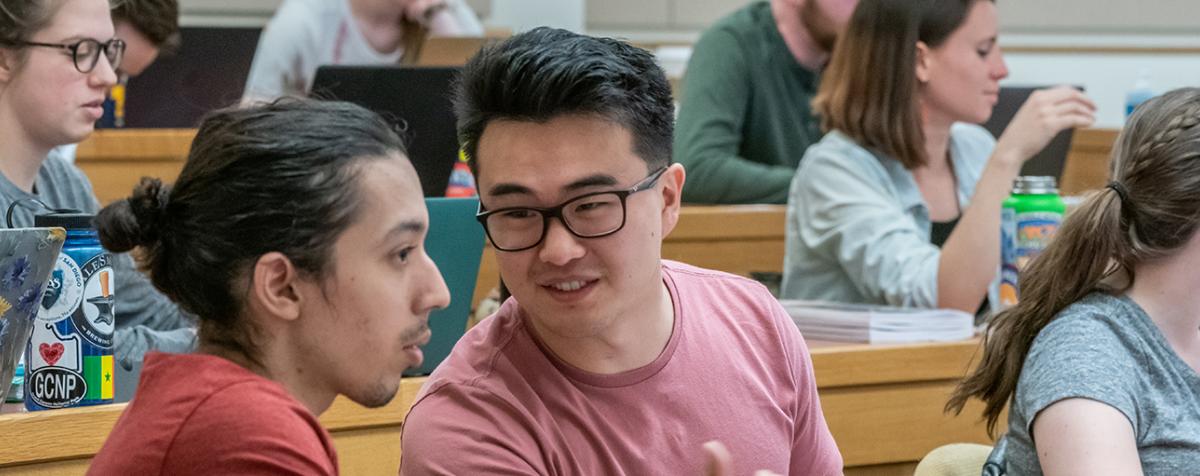Diversity, Equity and Inclusion
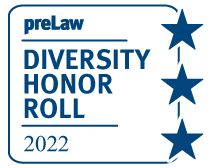
In today’s legal world, diversity, equity and inclusiveness are more than aspirations. They are necessities.
At Denver Law, a core part of our vision is the preparation of students for twenty-first-century legal practice, and this necessarily requires that our classrooms reflect the diversity of a twenty-first-century society.
-
Student Funds for DEI Professional Development
Please complete this application to be considered for funding support for a conference.
Inclusive Teaching Practices
The Sturm College of Law is committed to providing an inclusive learning environment for all our students. Inclusive teaching is an approach that is responsive to all intersecting social identities and the lived experiences of students in the classroom. Learn about Inclusive Teaching Methods at Denver Law as well as Sample Syllabus Statements provided by the DU Office of Teaching & Learning. Also, see below for approaches to inclusive teaching methods from Denver Law faculty members.
-
Inclusive Teaching Methods from Denver Law Faculty
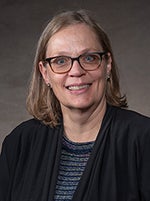
Professor Diane Kraft
“Succeeding in law school—or in anything—depends on so many variables, but one of the most important is a simple sense of belonging. The sense that, yes, this is where I should be and this is what I should be doing. I want each of my students to be able to say that, honestly, at the end of each semester, regardless of who they are, what their background is, or what obstacles they have had to overcome. Inclusive teaching begins even before students have had their first law school class. During orientation, I encourage students to ask questions as they read cases: Do you agree with the opinion? What did the Court get right, and what did it get wrong? Is the policy underlying the rule defensible? What questions do you have for the Court, given your own experiences and perspectives?”
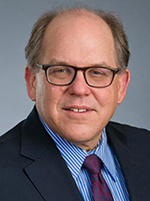
Professor Roberto Corrada
“I try to make a strong personal connection with each student in my class. I have students introduce themselves by video, answering several questions like where you’re from, where you went to college, what you studied, why you came to law school. I do this after sharing my own intro. I talk about my Puerto Rican background and that I was a first generation in the US law student. I’m well-traveled and can usually find some connection with everyone, usually some knowledge of where they are from. I especially look out for diverse students, particularly if they’re from out of state, to make them feel welcome. I out myself as a crit and a race crit and I explain what that means, but I also explain that most of my family is religious and conservative and we engage in dialogue all the time. I welcome such dialogues in the classroom no matter you’re background, but insist we keep it polite. I don’t tell students, but I have and will intervene if things start to get out of hand. I do this mostly by stepping into the debate myself. For neurodivergent students, I have designed my class around universal design principles. I have found, though, this kind of design actually benefits all students. One thing I did was look at all my deadlines and think about whether they were necessary. I give two practice problems a semester, they are each doable in one hour and from a past final exam. I give heavy feedback and some indication: check, check plus, or check minus, to give the student an idea where they stand. If the students turn in the problems, they get an A for 15% of their grade. They have 10 days to do the one hour problem. It’s set up so nobody even has to ask for an accommodation.”
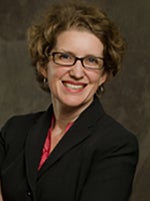
Professor Lindsey Webb
“Creating an inclusive classroom requires deconstructing barriers to learning that limit student understanding of the material and class engagement. Those barriers absolutely include inaccessible materials and spaces, but also include teaching practices that cause students to feel afraid, unseen, and disrespected. It isn’t enough to do the work in our own classrooms - we also must be critical of institutional or societal policies and laws that ask us to normalize exclusionary practices for the sake of tradition, cost, or “standards” that support an inequitable status quo.
Towards this end, I am guided by questions such as: Are the materials I am using affordable? Do the images, media, and readings I use in my class represent a variety of experiences and identities? Where can I provide moments of flexibility when my students are sick, having parenting or work conflicts, or otherwise experiencing challenges that come with being human? Where am I accepting a status quo that I think is harmful to myself, my students, or the institution, and what steps can I take to challenge those conditions? I am absolutely a work in progress on all of these issues -- but addressing them is essential if we seek to create a more expansive, healthier, and truly diverse educational institution and legal community. “

Prepare to be a Lawyer for Justice & Equity
Enroll in courses to prepare you to lawyer for justice & equity
- Six nationally ranked clinics: represent prisoners, small business, domestic violence survivors, and more
- Home to Lawyering in Spanish course offerings, featuring classes designed to support working with Spanish-speaking clients.
- Learn from Diversity, Equity, and Inclusion Practitioner Teaching Fellows, practicing lawyers brought in to share their lived experience and teach critical topics
Develop Your Advocacy Skills
Asylum Law | Native American Tribes and Federal Law |
Mental Health Law | Poverty Law |
Multiculturalism, Race and the Law | Sustainable Cities |
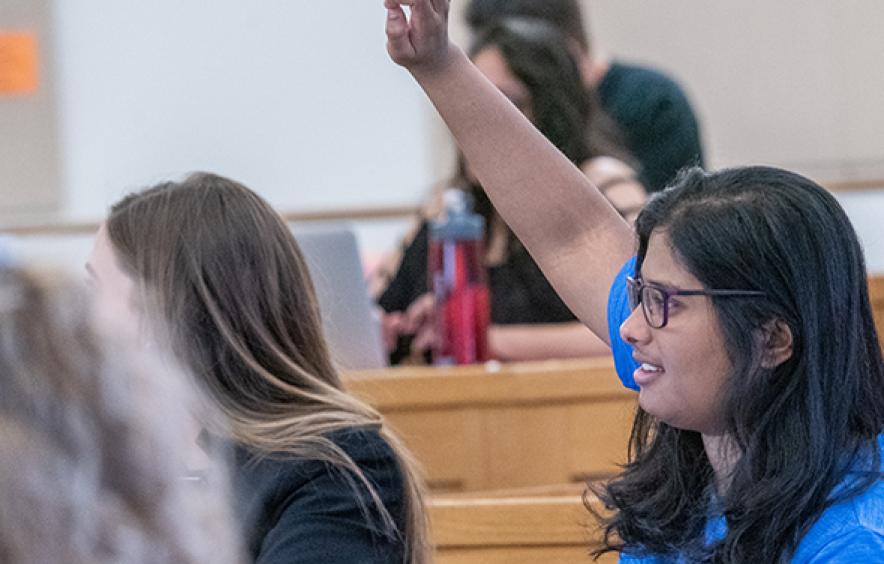
DEI Community Resources & Opportunities
- Participate in our nationally recognized Tribal Wills Project, writing estate documents for tribal members across the Mountain West, and Alternative Spring Break, supporting immigrants and migrants at the border in NM and Texas
- Attend events hosted by the Rocky Mountain Collective on Race, Place and Law, a faculty/staff group dedicated to identifying and addressing racial inequities in the U.S. and around the globe
- Join affinity-based student organizations, and gain peer and professional affinity mentors
-
Resources for Students Who Are Members of the LGBTQIA+ Community
The Sturm College of Law Office of Diversity, Equity, and Inclusion (DEI) seeks to cultivate a teaching and learning environment that creates a sense of inclusion, belonging, and well-being for all members of our community. We believe that the presence, participation, and perspectives of individuals from groups that have been traditionally underrepresented in legal education and the legal profession – including those that have experienced systematic marginalization, oppression, and exclusion – is of imminent importance and requires intentional time, energy, resources and engagement from our office. The Office of Student Affairs encourages student success by enriching the student experience outside the classroom, providing opportunities for engagement and leadership development, and supporting the growth of the whole student. Through all of its efforts – counseling, student organization support, and much more – Student Affairs aims to create a supportive student experience.
Created in partnership by both offices, the information below aims to provides you with a non-exhaustive list of resources, both internal and external to DU, that we hope offers meaningful ways to gain support, find community, and obtain information for LGBTQIA+ students. It is one way in which we seek to remind you that you belong at Denver Law. We are eager to connect with you so please reach out to the DEI office and Student Affairs and let us know what type of support we may provide.
Note: The resources included here that are not University of Denver resources are not endorsed by DU and we are not responsible for the content of, or service provided by any of these resources.
All-Gender Restrooms- Ricketson Law Building: Three (3) restrooms are located on each floor of the Westminster Law Library, found along the east end of the library. Two on each floor are specifically designated gender neutral while one is specifically designated for wheelchair accessibility but is also considered gender neutral.
- DU Campus more broadly: Visit this Interactive Campus Map
Preferred Name & Name Change Requests- The University of Denver has a process to allow students to designate name changes. For information on the process and documentation required, visit the DU Registrar. It is recommended by the Registrar that students complete both the preferred name and chosen/professional name process to ensure that the name change is consistent across the many DU platforms and systems.
- After reviewing the website, complete this Name Change Request Form.
- Students may also specify a "diploma name" to use on DU diplomas.
Changing the Name for your Law School Email Address- Please reach out to Student Affairs if your email address does not appropriately reflect the name you would like to be called. We will work with Networking Services to make this change. Your name does NOT need to be legally changed in order for this change to occur.
Sample email to instructors regarding name, gender identity, and/or pronoun
If you would like to contact your professor directly regarding your name and pronoun, below is a sample email you can use – please edit as you see fit. Further, if you prefer not to reach out to your professor directly, you can contact the Student Affairs office or DEI office for assistance.
Dear [appropriate title and professor's name -- e.g., Prof. Salazar]
I am a student in your upcoming [class name, course number and meeting day/time], and wanted to write with an important request regarding my presence, participation, and safety in your class. Although I will likely appear on the class roster as [legal name], I go by [chosen name]; and I would greatly appreciate you using that name and [correct] pronouns with me, and modeling the same to the rest of the class. If you have any questions regarding University policy around gender identity/expression equity, and/or for additional support, please feel free to contact Student Affairs.
Thank you very much for your understanding. I’m looking forward to your class!
Your name
Your email address
Changing your Student ID card (through the Pioneer ID Card Office)
The Pioneer ID Card Office can print you an ID with your preferred/chosen name. This name must be reflected in your student record before they can print you an ID with your preferred/chosen name. If you have not already submitted a preferred name request, you can find details on how to do so at this link. Please contact the Pioneer ID Card Office with further questions. Your name does NOT need to be legally changed for this change to occur.
DU Identity Resources
For more comprehensive information, visit the University’s identity resources page.
University of Denver Organizational and Student Resources
Colorado-Based Legal Organizations and Groups
National Affinity Organizations and Groups
Other Resources and Readings
The following resources might be useful to you as you navigate law school and the legal profession as a member of the LGBTQIA+ community. We recognize that not every reading or resource speaks to the myriad of lived experiences individuals have, but we hope some of these resources are helpful. The list is non-exhaustive. We encourage you to conduct your own individualized research on these services as well as selecting a mental health professional and/or yoga practitioner more broadly. The resources included here are not endorsed by DU and we are not responsible for the content of, or service provided by any of these resources.
Wellness & Physical/Mental Health Practitioners- Counseling Center Referral Service: This is a comprehensive web-based platform run out of DU’s counseling center. DU community members including students, staff, and faculty can search for a provider based on the provider’s name, gender identity, language proficiencies, racial/ethnic identity, area of expertise, services offered, and insurances accepted.
- DU Health and Counseling Center: Individual and group counseling available as well as in person and phone. Groups for students of color (as well as groups for other identities) available.
- DU Health and Counseling Center: LGBTQIA+ Healthcare
- DU Resources for Sexual Health
- Lavender Book: BIPOC LGBTQI+ resource guide.
- National Alliance on Mental Health- LGBTQI: This page lists a number of resources to assist on identifying a mental health provider (scroll down!)
- National Queer and Trans Therapists of Color Network: Mental health resources for persons identifying as LGBTQI+.
Blogs, Books, and Other Resources
-
Resources for Students of Color at Denver Law
The Sturm College of Law Office of Diversity, Equity and Inclusion (DEI) seeks to cultivate a teaching and learning environment that creates a sense of inclusion, belonging, and well-being for all members of our community. We believe that the presence, participation, and perspectives of individuals from groups that have been traditionally underrepresented in legal education and the legal profession – including those that have experienced systematic marginalization, oppression, and exclusion – is of imminent importance and requires intentional time, energy, resources and engagement from our office. The Office of Student Affairs encourages student success by enriching the student experience outside the classroom, providing opportunities for engagement and leadership development, and supporting the growth of the whole student. Through all of its efforts – counseling, student organization support, and much more – Student Affairs aims to create a supportive student experience.
Created in partnership by both offices, the information below aims to provides you with a non-exhaustive list of resources, both internal and external to DU, that we hope offers meaningful ways to gain support, find community, and obtain information for students of color. It is one way in which we seek to remind you that you belong at Denver Law. We are eager to connect with you so please reach out to the DEI office and Student Affairs and let us know what type of support we may provide.
Note: The resources included here that are not University of Denver resources are not endorsed by DU and we are not responsible for the content of, or service provided by any of these resources.University of Denver Organizational & Student Resources
Denver Law Affinity Groups
- Asian Pacific Law Students Association (APALSA)
- Black Law Students Association (BLSA)
- Latinx Law Students Association (LLSA)
- Native American Law Students Association (NALSA)
- Law Students with Disabilities Organization
DU Affinity Groups- Black Community Initiatives
- Black Graduate Student Association
- IRISE
- The Cultural Center
- The Latinx Center
Colorado-based Legal Organizations & Groups- Center for Legal Inclusiveness
- Affinity Bar Organizations for Lawyers/Law Students of Color
National Affinity Organizations & GroupsNational Student Affinity Organizations
- National Asian Pacific American Law Students Association
- National Black Law Students Association
- National Latino/a Law Student Association
- National Muslim Law Student Association
- National Native American Law Students Association
- North American South Asian Law Students Association
National Affinity Bar Organizations- Hispanic National Bar Association
- Latina Lawyers Bar Association
- National Bar Association
- National Asian American Pacific American Bar Association
- National Association of Muslim Lawyers
- National Conference of Black Lawyers
- National Native American Bar Association
Other Resources & Readings
The following resources might be useful to you as you navigate law school and the legal profession as a person of color. We recognize that not every reading or resource speaks to the myriad of lived experiences individuals have, but we hope some of these resources are helpful. The list is non-exhaustive and while a few of the organizations bear the name of an actual historically marginalized group, all are intended to serve individuals from historically marginalized groups. We encourage you to conduct your own individualized research on these services as well as selecting a mental health professional and/or yoga practitioner more broadly.
Note: The resources included here that are not DU resources are not endorsed by DU and we are not responsible for the content of, or service provided by any of these resources.
Wellness & Mental Health Practitioners- Counseling Center Referral Service: This is a comprehensive web-based platform run out of DU’s counseling center. DU community members including students, staff, and faculty can search for a provider based on the provider’s name, gender identity, language proficiencies, racial/ethnic identity, area of expertise, services offered, and insurances accepted.
- DU Health and Counseling Center: Individual and group counseling available as well as in person and phone. Groups for students of color (as well as groups for other identities) available.
- Asian Mental Health Collective: Mental health resources for persons of Asian descent.
- Black Men Heal: Mental health resources for Black men.
- Courageous Yoga: Inclusive yoga resources, local to Denver.
- Lavendar Book: BIPOC LGBTQI+ resource guide.
- Liberate App: Mental health resources for People of Color.
- MannMukti: Mental health resources for persons identifying as South Asian.
- National Asian American Pacific Islander Mental Health Association: Mental health resources for persons of Asian American and Pacific Islander descent.
- National Queer and Trans Therapists of Color Network: Mental health resources for persons identifying as LGBTQI+.
- Native American Counseling and Healing Collective: Mental health resources for persons identifying as Native American.
- Therapy for Latinx: Wellness and therapeutic resources for Latinx womxn.
- Therapy for Black Girls: Wellness and therapeutic resources for Black womxn.
Blogs, Books, and Other Resources
-
Resources for Military Veterans
The Sturm College of Law Office of Diversity, Equity and Inclusion (DEI) seeks to cultivate a teaching and learning environment that creates a sense of inclusion, belonging, and well-being for all members of our community. The Office of Student Affairs encourages student success by enriching the student experience outside the classroom, providing opportunities for engagement and leadership development, and supporting the growth of the whole student. Through all of its efforts – counseling, student organization support, and much more – Student Affairs aims to create a supportive student experience.
Created in partnership by both offices, the information below aims to provides you with a non-exhaustive list of resources, both internal and external to DU, that we hope offers meaningful ways to gain support, find community, and obtain information for U.S. military veterans. It is one way in which we seek to remind you that you belong at Denver Law. We are eager to connect with you so please reach out to the DEI office and Student Affairs and let us know what type of support we may provide.
Note: The resources included here that are not University of Denver resources are not endorsed by DU and we are not responsible for the content of, or service provided by any of these resources.University of Denver Organizational & Student Resources
- The Sturm Center: Provides mental health support for veterans (no matter discharge status, era or combat status) and service members including Guard and Reserve members and their families.
- Veterans and Military Services: GI information and student services.
- DU Registrar (not law) - Military & Veterans Education Programs
- Center for Advocacy, Prevention, and Empowerment - Veterans Resources
- Denver Law Student Organization - Student Veterans of America
National Legal Organizations and Groups
-
Resources for Students with Disabilities at Denver Law
This webpage, created in partnership by the Office of Student Affairs and the Office of Diversity, Equity, and Inclusion (DEI) at Denver Law, provides you with a non-exhaustive list of resources, both internal and external to DU, that we hope offer meaningful ways to gain support, find community, and obtain information for students with disabilities and accommodations. It is one way in which we seek to remind you that you belong at Denver Law. We are eager to connect with you so please reach out to the DEI office and Student Affairs and let us know what type of support we may provide. Note: The resources included here that are not DU resources are not endorsed by DU and we are not responsible for the content of, or service provided by any of these resources.
DU Accommodation Resources
Denver Law along with AccessibleDU: Student Disability Services (SDS) are dedicated to giving students with disabilities an equal opportunity to participate at the University of Denver. SDS provides accommodations at no cost to any student who has a documented disability as required by the Americans with Disabilities Act and Section 504 of the Rehabilitation Act. Accommodations are designed to afford students equal opportunity to participate in DU and Denver Law’s robust courses, activities, and programs.
How do Accommodations Work at DU Law?
All accommodations must be reviewed and approved by DU’s Student Disability Services. After accommodations have been approved, SDS will communicate your new accommodations to the Office of Student Affairs at DU Law. Student Affairs is responsible of implementing accommodations at the law school and supporting law students with accommodations. Many accommodation procedures are different at the law school then they are for DU’s undergraduate population. It is important to be in communication with Student Affairs and understand how your accommodations apply to the DU Law setting.
How can I Apply for Disability Accommodations?
Requesting Accommodations for the first time at Denver Law:
1. Download and fill out the Intake Packet. Submit the packet and documentation from your doctor to Student Disability Services (dsp@du.edu) or in person at SDS office on the 4th floor of Ruffatto Hall.
2. After SDS has reviewed your documentation, a staff member from SDS, followed by a Student Affairs team member, will be in contact with you to let you know the accommodations for which you have been approved. The communication from Student Affairs will include how your accommodation(s) will be applied specifically within the law school.
3. All accommodations in the law school are managed through the Office of Student Affairs. Law students are NOT required to disclose disabilities and/or accommodations to their faculty unless you choose to do so.
Please Note: It can take up to six weeks for SDS to review your documentation, so be sure to get your documentation to SDS ahead of time if you wish to receive accommodations on tests and exams.
Requesting Additional Accommodations:
To request a new accommodation, or modification to an existing accommodation, students may contact SDS by email (dsp@du.edu), phone (303.871.2278) or in person (4th Floor of Ruffatto Hall). Students may also contact Student Affairs before reaching out to SDS first. You can contact Student Affairs by e-mail, phone (303.871.6108), or in person (Ricketson Law Building, Suite 115).
Accommodations cannot be retroactive; they can only be applied to current or future course work or University programming.
Exam Accommodations:
In order to receive testing/exam accommodations, you need to be approved by SDS. Upon approval, Student Affairs will send you further communication about how test/exam accommodations are implemented within the law school. Accommodations may include, but are not limited to, extended time testing, minimal distraction testing environments, etc.
UNIVERSITY OF DENVER ORGANIZATIONAL AND STUDENT RESOURCES
Disability Law Student Organization: Disability Law Student Organization is a student-run affinity group for people with disabilities. The focus of the group is to provide a supportive environment for all students with disabilities. The goal is to increase the Denver Law and the broader legal communities' accessibility and cultural competency regarding disabilities. For more information about this organization, become a member, and/or get involved, please contact the Office of Student Affairs and they will connect you with the current student leaders!
NATIONAL AFFINITY ORGANIZATIONS AND GROUPS
National Disabled Law Student Association
Wellness & Physical/Mental Health Practitioners
• Counseling Center Referral Service: This is a comprehensive web-based platform run out of DU’s counseling center. DU community members including students, staff, and faculty can search for a provider based on the provider’s name, gender identity, language proficiencies, racial/ethnic identity, area of expertise, services offered, and insurances accepted.
• DU Health and Counseling Center: Individual and group counseling available as well as in person and phone. Groups for students of color (as well as groups for other identities) available.
-
Resources Provided by the University of Denver
The University enrolls, welcomes, and supports all of its members, and will continue to provide services and resources to all members of our community to support their ongoing success.
-
Resources for Outside Organizations and Events
Denver Law appreciates the legal community’s willingness to offer a plethora of programs and pathways that support students’ legal careers. Such engagement often offers meaningful opportunities for students to pursue externships and secure jobs, grow their networks, and develop mentorship relationships with practitioners. They can also help students build confidence and expand their knowledge of the profession and legal practice. To help ensure such opportunities are implemented and disseminated in inclusive and supportive ways, Denver Law shares these best practices to assist outside/external organizations in their event planning and advertising to the Denver Law student community. We strongly encourage outside/external organizations to adhere to these practices. If you have any questions, please contact Assoc. Dean Alexi Freeman at afreeman@law.du.edu.
Diversity-Based Externship Partnerships
Experience Law Through These Externship Partnerships
The Legal Externship Program offers different specialty programs in which applications are solicited and students enroll in subject-specific, robust seminars that range from 1 to 3 credits. The seminars typically teach a mix of substantive law and skills relevant to the area of practice.

Lorenzo Márquez Externship Program
The Colorado Supreme Court and the Colorado Court of Appeals seek 2L, 3L, and 4L students from CU and DU as judicial externs for the Lorenzo Márquez Externship Program for Spring. Judge Lorenzo Márquez was the first Latino district court judge in Grand Junction, and in 1988, he became the first Latino judge on the Colorado Court of Appeals, where he served until his retirement in 2008. Judge Márquez started the appellate externship program to inspire all students, and particularly those from underrepresented backgrounds, to consider post-graduation clerkships and possible careers on the bench. Visit the Externships page at the following link for more information.

Pledge to Diversity
CPTD is an external program that offers paid private law firm and corporate externships for students from diverse backgrounds, which means the presence of unique viewpoints, backgrounds, experiences, and expression, during their 1L summer in collaboration with DU’s Career Development Office.
MixDIP
MixDIP was founded in 2014 by now-retired Magistrate Judge Kristen Mix and is designed to provide diverse CU and DU law students with fall semester public-sector internships. The program features internship opportunities with a variety of public employers, and students who participate receive academic credit based on the amount of time they devote to the internship. All students are eligible to apply.
Diversity, Equity and Inclusion Practitioner Teaching Fellow Initiative
The University of Denver Sturm College of Law hosts the Diversity, Equity and Inclusion Practitioner Teaching Fellow Initiative. Fellows teach a class at Denver Law for one semester and also engage in informal advising with Denver Law. Developed by the DU Office of Diversity, Equity and Inclusion in Spring 2021, this initiative is the first of its kind in the nation. Many of the courses taught have become permanent curricular offerings.
Fall 2024 DEI Fellow
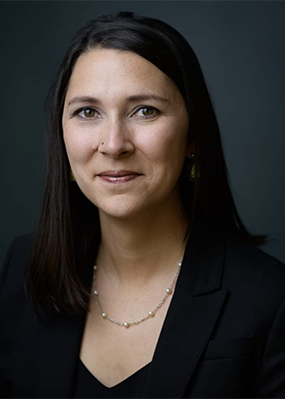
Amanda Gonzalez
Clerk and Recorder - Jefferson County
Fall 2024 Course
Election Law
29% Students of Color Incoming 1L Class in 2024
A Best Schools for Racial Justice preLaw Magazine 2022
62% Women Incoming 1L Class in 2024
Top School for Hispanic Students preLaw Magazine 2022
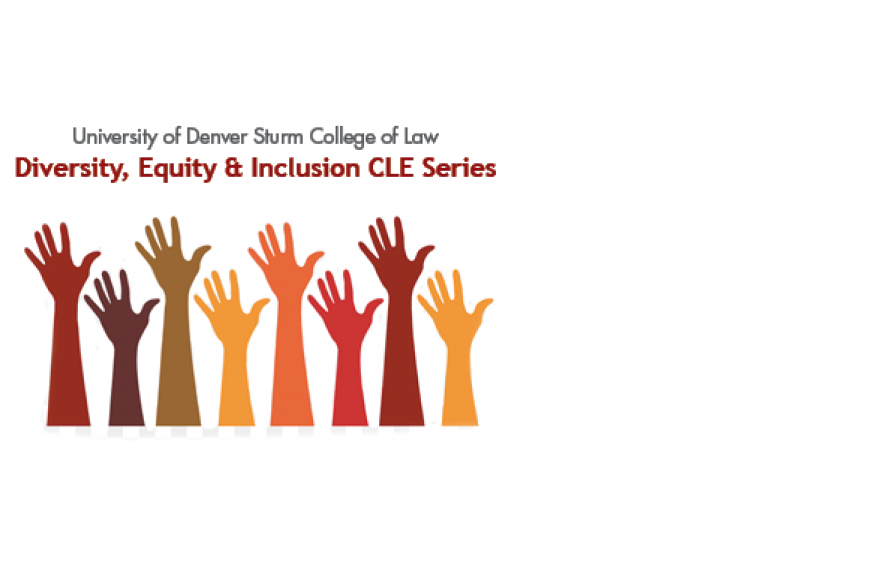
DEI CLE Series: Spring 2025
April 4, 2025: Words Matter — Cultivating Communication and Identity Equity
12 pm - 1 pm, via Zoom
1 EDI CLE credit pending
Featuring Ryann Peyton
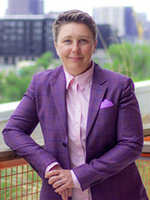
This CLE featuring Ryann Peyton highlights the power of language in shaping discussions, particularly around sensitive topics like race, gender, and identity. This workshop equips legal professionals with tools to promote identity equity and cultural humility, fostering inclusivity within the profession and their organizations.
April 9, 2025: Transitioning to Teaching — Tips for Navigating the Academic Market and Becoming a Law Professor
12 – 1:30 p.m. ET / 10 – 11:30 a.m. MT / 9 – 10:30 a.m. PT, via Zoom
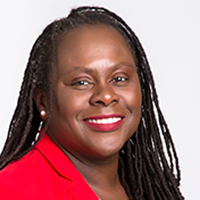 | 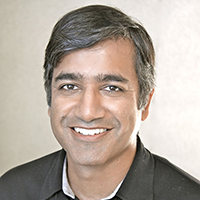 | 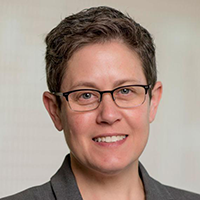 |
Angela | Sameer Ashar | Kyle Velte |
Needing a new role in the legal profession? Curious about a career in legal education? Join us for a webinar to learn about the different pathways into law teaching and how to make yourself a strong candidate. This virtual webinar will feature Dean Angela Onwuachi-Willig (Boston University School of Law), Professor and Clinical Director Sameer Ashar (University of California Irvine School of Law), and Associate Dean Kyle Velte (University of Kansas School of Law).
Moderated by Professor Catherine Smith (Washington and Lee University School of Law) and Associate Dean Alexi Freeman (University of Denver Sturm College of Law).
April 22, 2025: Neurodiversity in the Legal Workplace
12 pm - 1 pm, via Zoom
1 EDI CLE credit pending
Featuring River Sedaka
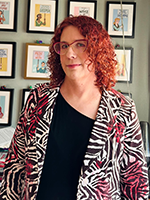
Neurodiversity refers to differences in how people think, learn, process information, communicate, collaborate, and understand the world around them. It includes conditions such as autism, ADHD, PTSD, OCD, bipolar disorder, and many others. In this session, attendees will learn about common ways that different neurotypes experience the world differently, and in particular, how that shows up in the workplace. The presentation will include suggested strategies for attendees to make their offices more neuroinclusive.
DEI CLE Series: Past Events
February 28, 2025: Disrupting Our Relationship with Perfectionist Work Culture
12 pm - 1 pm, via Zoom
1 EDI CLE credit pending
Featuring Ryann Peyton

This CLE featuring Ryann Peyton explores how perfectionism, a deeply ingrained trait in the legal profession, impacts workplace dynamics, personal well-being, and inclusivity. This session examines the intersection of perfectionism with race and cultural norms, offering practical tools and strategies to foster healthier, more equitable legal workplaces.
-
Fall 2024 DEI CLE Series
October 11, 2024: Navigating Bias in the Courtroom
12 pm - 1 pm, via Zoom
1 EDI CLE credit securedSpeakers: Judge LaQunya Baker and Judge Jon Olafson
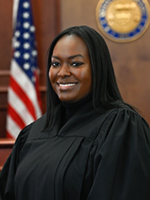
Judge LaQunya Baker 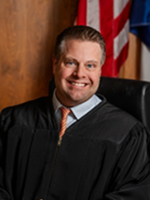
Judge Jon Olafson December 6, 2024: Navigating Bias in the Profession
A Discussion of Challenges, Strategies, and Tips for Success Focused on Female and Diverse Associates
12 pm - 1 pm, via Zoom
1 EDI CLE credit securedSpeaker: Miko Ando Brown
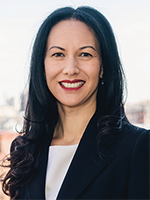
Miko Ando Brown December 13, 2024: Supporting Female & Diverse Associates
Tips on Navigating Bias to Improve Associate Retention, Engagement, and Well-Being for Partners, Leaders, and Recruiters
12 pm - 1 pm, via Zoom
1 EDI CLE credit securedSpeaker: Miko Ando Brown

Miko Ando Brown -
Spring 2024 DEI CLE Series
January 31, 2024: Diversity on the Bench
Featuring Judge Maritza Dominguez Braswell & retired Judge Cynthia Mares
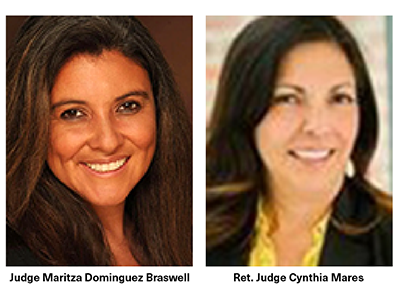
Judge Maritza Dominguez Braswell and retired Judge Cynthia Mares discussed the lack of diversity in the judicial sector and their efforts as part of their roles leading the Diversity on the Bench Coalition to ensure the bench represents the demographics of Colorado.February 28, 2024: Religious Inclusivity
Featuring DU Professor Sarah Pessin

Sarah Pessin, Professor in the Philosophy department within the College of Arts and Humanities, Interfaith Chair, and Director of Spiritual Life at the University of Denver, discussed religious inclusivity in the workplace and navigating religious diversity during challenging times.March 5, 2024: Access to Justice
Featuring Elisa Overall & Toni-Anne Nunez
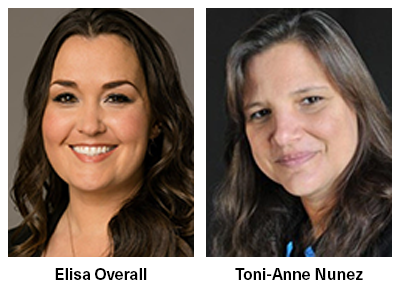
Elisa Overall, Executive Director of the Colorado Access to Justice Commission, and Toni-Anne Nunez, Director of Access to Justice for the Colorado Bar Association/Denver Bar Association discussed the access to justice crisis in our state and the impact of such crisis on particular communities.
-
Fall 2023 DEI CLE Series
October 6: Understanding the POWR Act Featuring Attorney Iris Halpern
Learn about Colorado’s new law, Protecting Opportunities and Workers’ Rights Act. This session is useful for employers and employees to understand rights and obligations.November 9: Luminarias: An Empirical Portrait of the First Generation of Latina Lawyers
Join us for this special event as we hear about DU Visiting Scholar Dolores Atencio’s 7-year research study to identify the first Latinas who earned law degrees in the United States and Puerto Rico over the 100-year study period of 1880-1980. She will take listeners on a journey from “segregation to the dawn of integration” to present the first empirical portrait of Luminarias.November 17: The State of Sexual Orientation and Gender Identity Law featuring Assoc. Dean and Prof. Kyle Velte of Kansas Law
Gain insights into federal and state laws affecting members of the LGBTQIA+ community.
-
Summer 2023 DEI CLE Webinar
July 6, 2023 - Best Practices for Hiring and Working with Students From Underrepresented & Marginalized Groups
-
Spring 2023 DEI CLE Series
Feb. 27, 2023 - Radical Inclusion
April 7, 2023 - What's the T?: Gender Identity and Legal Inclusivity
April 12, 2023 - Navigating Bias in the Profession
-
Fall 2022 DEI CLE Series
November 3, 2022 - Workplace Inclusivity and Allyship 101
November 17, 2022 - A Trauma-Informed, Anti-Racist Approach to Legal Advocacy
Watch Recording
December 15, 2022 - Generational Differences in the Legal Profession
Watch Recording
-
Spring 2022 DEI CLE Series
February 24, 2022 - DEI at Your Organization: What’s Permissible and What Works
Watch Recording
March 7, 2022 - Introduction to Neurodivergence for Lawyers
Watch Recording
April 6, 2022 - Inclusive Professionalism
Watch Recording
-
Fall 2021 DEI CLE Series
November 15, 2021 - Returning to Work with a DEI Lens
October 26, 2021 - Equal Pay/Family Leave
Watch Recording
October 15, 2021 - LGBTQ+ 101 Training
Watch Recording
September 13, 2021 - Critical Race Theory and the Law
Watch Recording
-
Spring 2021 DEI CLE Series
April 14, 2021 - SCOL DEI Storytelling Series: NFL Player Bennie Fowler & Lawyer, Teresa Gueyser (Bennie’s mother)
April 8, 2021 - Tokenism with Judge Darleen Ortega, the first woman and Latinx judge on the Oregon Court of Appeals
March 31, 2021 - Gender Identity and the Law
Watch Recording
March 9, 2021 - Disability Justice: Understanding Rights, Responsibilities, and Best Practices for the Legal Profession
Watch Recording
Feb. 25, 2021 - About Race: Working with Lawyers and Law Students of Color
Watch Recording
Feb. 2, 2021 - Interrupt Implicit Bias by Design: How Legal Organizations are Using Inclusion Nudges and Embedding Bias Interrupters
Jan. 28, 2021 - What you Don’t Know Can Hurt You: The Hidden Impacts of Unconscious Bias
-
2020 DEI CLE Series
July 31, 2020 - What is Movement Lawyering
Watch Recording
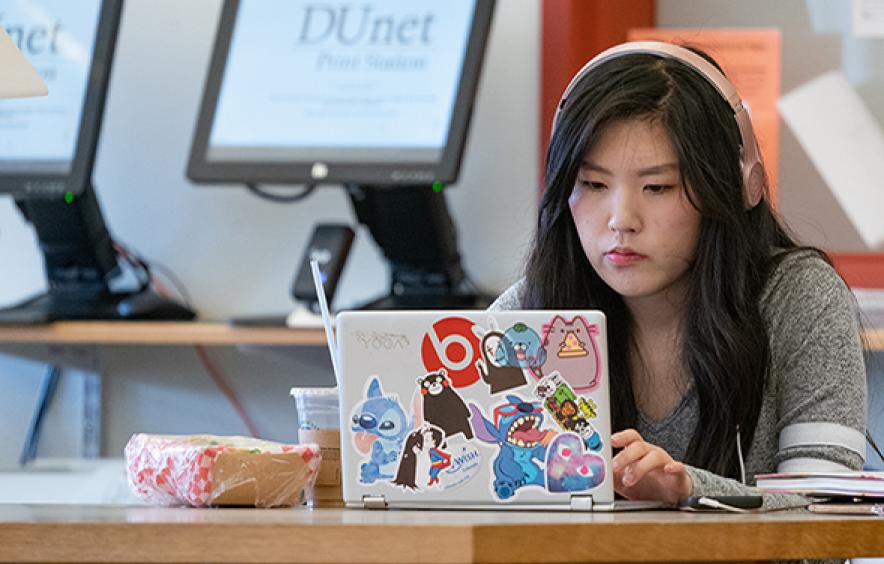
Pipeline Initiatives
Pipeline programs, developed and in place at many law schools, are designed to increase the flow of diverse students into the pool of applicants for legal education. Without that increase, “the profession will remain apart from the population it represents.” The challenges are many and varied. Sundry inequities and hurdles make access to education for diverse students “a winding maze with detours, dead ends, obstructions and holes.” It follows that no one-size-fits-all pipeline program is possible, and our efforts at Denver Law offer a variety of approaches.
-
Pipeline: Middle School and High School to College
Annually, we host 5-20 workshops with Colorado middle and high schools to expose students to law school and the profession. In 2022, we were named Denver Public Schools' Xplore Career Partner of the year.
Our partnership with the Denver Urban Debate League brings the nonprofit under our roof, allowing us to provide support to 100-200 students across Metro Denver to participate in competitions and develop skills translating to academic success and access.
Our partnership with Learn Your Rights in the Community informs students of their constitutional rights in police interactions and immigration matters, while also exposing them to lawyers and law students who deliver such presentations.
Volunteer Today! -
Pipeline: Undergraduate to Law School
We have a rich history of hosting Pipeline Conferences. Since 2014, we have hosted multiple conferences that bring together law professors, law school admissions officials, lawyers, and law students together with undergraduates from historically marginalized groups attending Colorado colleges and universities to share information about preparing for and succeeding in law school.
Over time, we've established partnerships with Metro State University, Fort Lewis College, University of Northern Colorado, the Community College of Denver, and other local schools. In 2021-22, supported by LSAC, we hosted the Inter-Institutional Consortium Pre-Law Education program to provide resources, mentors, and workshops to students. In 2025, we fostered a relationship with Lexis and Fort Lewis College to help pre law students get a jump start on research databases. We always seek additional collaborations - contact diversity@law.du.edu. -
Pipeline: Law School Faculty
We must do more to increase the diversity of faculty at Denver Law. Our students deserve to learn from faculty who bring diverse perspectives and experiences to their classrooms, and we believe in supporting the teaching and scholarship interests of such faculty.
We recently launched the Diversity, Equity and Inclusion Practitioner Teaching Fellow Initiative to bring in talented lawyers as adjunct professors to teach specialized courses that share their professional and lived experiences. Historically, our Emerging Legal Scholars Initiative has sponsored scholars seeking to enter the legal academy to attend conferences.
Zachary Al-Tabbaa, JD '19I was inspired by the plethora of practicing attorneys and students that were impassioned to help their communities and to help me and other students like me. I am in fact half Hispanic. I am Puerto Rican Spaniard and my dad is a Syrian immigrant, so being a half Hispanic half Arab in this country has been a bit more difficult and so finding a community that really took me in and is helping myself and others like me is really awesome.
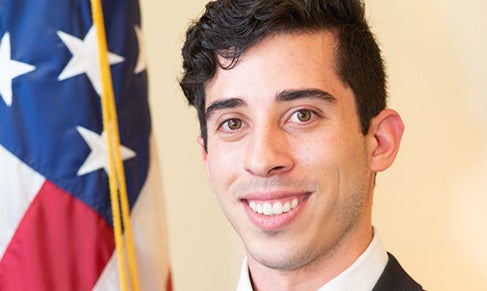

Strategic Planning
In 2020, Denver Law recommitted to developing a new strategic plan around diversity, equity, and inclusion (DEI) through a committee of students and faculty chaired by Associate Dean Alexi Freeman.
-
DEI Strategic Plan
Our DEI work over the next few years will focus on three key areas:
- Recruitment, Representation & Retention. To paraphrase Hamilton, many more students, faculty, and staff from diverse backgrounds need to be in the room where it happens. We must embark on a combination of large-scale, long-term interventions, and easier yet meaningful short-term steps to diversify the Denver Law community at all levels.
- Systems of Care. Research consistently shows that students from historically marginalized and minoritized feel excluded from law school spaces. We must be both critical and proactive, and work smarter and harder to create a sense of belonging for all of our students, with special attention to those who have been systematically marginalized, oppressed, and underrepresented in our building and profession more broadly.
- A Legion of Justice and Equity Workers. We must equip and empower all students (and faculty and staff) to do work now and in the future that aims to reduce inequities in society so that we can ensure our principles of diversity, equity and inclusion expand beyond our walls.
Our current efforts build on our history. A strategic plan adopted by the faculty in 2011, committed the Sturm College of Law to adapt to a changing world by considering the impacts on law and legal practice of phenomena such as globalization, increasing diversity, and the growing inter-connectedness of people and places. Four years later, our plan recognized the value of the school’s pipeline programs and recommitted us to the work of helping to develop a legal profession whose diversity matches the society it serves. Our pipeline initiatives have been designed to open up pathways for diverse students to legal education. It is where we have historically directed our energy, and while it will always be a hallmark of DEI at DU, we are eager to expand our efforts.

The Seven Principles Underlying Pipeline Efforts
Our Approach and Guidelines
-
1. Go local
We seek to foster connections between Denver Law / DU and young people in the city of Denver, the state of Colorado, and the Rocky Mountain region. We are committed to opening doors to those “in our own backyard” and creating opportunities that ultimately will strengthen diversity within the practicing bar.
-
2. Build relationships
Our goal is to build genuine connections and relationships, both with partner organizations and the students with whom we are engaged. Relationships serve to strengthen our efforts and ultimate outcomes.
-
3. Level the playing field
Structural barriers and barriers of thought both undermine the competitiveness of diverse students in law school admissions and in law school performance. We want to break those down, or at least chip away at the walls.
-
4. Embrace the long-term view
The developments we envision will not happen overnight; a first-year high school student with whom we are engaged now is at least seven years away from admission to law school.
-
5. Monitor and assess
We must be able to offer compelling arguments for why we are undertaking particular projects and monitor indicators that tell us whether we are on the right track. In the long term, outcomes must be quantifiable.
-
6. Be efficient—in terms of cost and expertise
Programs with large price tags are not necessarily going to be more effective than programs with smaller ones. Further, we do not want to reinvent the wheel; we acknowledge that our partners in the University and broader community often have skills and expertise we do not.
-
7. Support the bigger picture
Our broad interest is in breaking down barriers that impede the success of less privileged individuals and groups in our communities and in society. Although our goal is for the students with whom we engage to ultimately choose the University of Denver and the law school, if a student chooses another undergraduate program or law school, or opts for business or medical school instead, that is still a success, because it is a success for that student and for equity in our society.
See, Catherine Smith, Seven Principles: Increasing Access to Law School Among Students of Color. Iowa Law Review, 96: 1677, 1683 (2011).
Past Highlights & Events
-
2020 Highlights & Events
October-December - 21-Day Racial Equity Habit-Building
Nov. 18 - Collective Reflection & Debrief for Students from Diverse Backgrounds
Nov. 16 - Supporting Externs & New Lawyers from Diverse Backgrounds
Nov. 12 - It’s the 30th Anniversary of the ADA: Let’s Reflect on the State of Disability Justice
Nov. 2 - Collective Reflection & Debriefing Session for Students of Color
Oct. 13 - Negotiation is Everything: Let's Level up your Comp Package
Sept. 30 - Connection Reception (hosted by RPL)
Sept. 24 - Reflecting on Justice Ginsburg & Gender Equality
-
2019 Highlights & Events
April 5, 2019
The Pipeline Starts Early: Fifth Graders Visit Denver Law
On April 5, 2019, eleven fifth-grade students and their teachers from Stedman Elementary School (Denver Public Schools) visited the University of Denver Sturm College of Law. They attended Professor Catherine Smith's Torts class and asked questions during class. Allana Forté, Associate Vice Chancellor and Director of Admission at University of Denver, Kiah Ellis, a 2L law student, and Yvonne Cherena-Pacheco, Associate Director of Admissions at Denver Law spoke with the students.

April 5, 2019

April 4, 2019

April 1, 2019

February 27, 2019
Patty Powell discusses diversity and inclusion in the Denver and Colorado Bar on 9NewsPatty Powell, Denver County Court Judge Gary Jackson and retired Denver County Court Judge Dianne Briscoe spoke about the experience of African Americans in the Denver and Colorado Bar on 9News. See the news segment here. We salute Patty Powell for the inclusion programming she brings to Denver Law.

February 26, 2019

February 19, 2019
Shriver Center seeks attorney to fill a new positionThe Sargent Shriver National Center on Poverty Law is hiring for a new position -- an attorney who will expand the Shriver Center's teaching and training for lawyers across the country working on economic and racial justice. The Shriver Center's core teaching areas are racial justice, community lawyering, affirmative advocacy, and leadership development.
February 13, 2019

February 10, 2019
Denver Law's Lexi Freeman is nominated for the 2019 Inclusiveness@Work Award
The Center for Legal Inclusiveness,dedicated to advancing diversity in the legal profession, has nominated Denver Law's Lexi Freeman, Associate Professor of the Practice and Director of Externships and Public Interest Initiatives, for its 2019 Inclusiveness@Work Award. The winner will be announced at CLI's "The Ball for All," held March 2, 2019. Good luck, Lexi!
February 8, 2019
Marbre Stahly-Butts, Executive Director of Law for Black Lives, speaks at Denver Law Tuesday, February 26
January 16, 2019
Kiah Ellis, BLSA President, to speak at MLK Day Marade Monday January 21Monday, January 21, 2019 is Martin Luther King, Jr., Day in Denver and throughout the U.S. Denver celebrates with the “Marade.” Marchers meet at City Park. A pre-Marade program begins there at 9:30 a.m. Among featured speakers is Kiah Ellis (pictured below), Denver Law 2L and President of Denver Law’s Black Law Students Association (BLSA). Marade marchers depart City Park at 10:45 a.m. and walk 25 blocks along Colfax Avenue, arriving at Civic Center Park.
BLSA welcomes the Denver Law community to join the festivities.
For a bus ride to City Park, meet in the Forum at 8:15 a.m. Monday morning, January 21.
Or meet the group at City Park—at 9:15 you will find the DU Law group just south of the MLK monument in the Park.

-
2018 Highlights & Events
November 9-10, 2018

November 6, 2018
"Being inclusive is healthy, for individuals and for organizations" -- Patty Powell

October 30, 2018
Rocky Mountain Collective on Race, Place, and Law (RPL) Calls for Recommitment to Civil Dialogue and Shared Values of Diversity, Inclusion, and EquityA message was sent to hundreds of members of the University of Denver community recently. The message was homophobic, racist, and misogynist and was designed to terrorize some of DU’s most vulnerable and marginalized communities. It was a message also rooted in inflammatory rhetoric, like many such messages and speeches in the United States today, meant to mock, disregard, and divide us as a community and a nation about the importance of inclusion, diversity, and equity in our society. We know such messages also have consequences and have led to violence, murder and terror in our nation. Last week’s murder of two African Americans at a Kroger grocery store, the pipe bomb scare and the attack on the Tree of Life synagogue are merely the latest examples. We condemn such messages and urge the University community to engage in respectful dialogue, even around the most divisive issues we may confront.
Our nation is deeply divided over many issues. It is therefore more important than ever that universities fulfill their traditional role as venues in which respectful dialogue over our toughest and seemingly intractable challenges can be conducted. In order to have a productive dialogue, it is imperative that all be respected. The interchange of ideas, and the resulting debate, cannot be productive if one’s sexual orientation, race, gender or other identities are maliciously attacked. Such speech does not fall within the protection of the concept of academic freedom.
The courts have long recognized this fundamental principle. As with all other rights, the right to free speech is appropriately limited in very specific circumstances. The theoretical justification for free speech is that such speech will benefit society by producing a robust debate so that all can determine their views on the issue at hand. Hate-filled messages like the one sent out recently do not assist the public debate; they only harm members of our community. We are in solidarity with those who were harmed by this most recent message. We encourage all members of the University community to recommit to civil dialogue and our shared values of diversity, inclusion, and equity.
On behalf of the staff and faculty of The Rocky Mountain Collective on Race, Place, and Law at the University of Denver Sturm College of Law.October 9, 2018


October 5, 2018

Findings above are from a report issued by the ABA Commission on Women in the Profession and the Minority Corporate Counsel Association.
October 2, 2018

September 28, 2018
Metro State Day at Denver Law
Friday, September 28 was Metro State Day at Denver Law. Thirty-four undergraduate students from Metro State attended a lecture by Denver Law professor Ian Farrel (above). Catherine Smith, Associate Dean for Institutional Diversity and Inclusiveness spoke with the students. They toured the building and learned about applying to law school from Admissions Counselor Noah Koester. At lunch, they sat and talked with Denver Law students, including Metro State graduates attending Denver Law.


September 27, 2018

September 21, 2018
KIPP HIGH SCHOOL DAY AT DENVER LAW
Twenty-six KIPP students, from KIPP Collegiate High School and KIPP Northeast Denver Leadership Academy, spent a half-day at Denver Law on Friday, September 21, 2018. Law students led tours of the building for the students. Then they heard from Professor Beto Juárez (below, left), Associate Dean Catherine Smith, DU Associate Vice Chancellor and Director of Admission Allana Forté (below, right), and Denver Law Associate Director of Admissions Yvonne Cherena-Pacheco. The KIPP students attended a Torts class taught by Professor César García Hernández. Finally, they lunched with Denver Law students and professors in the Forum. KIPP counselors Lisa Gibbs and Hassan Casanova accompanied the KIPP students.


September 19, 2018
Colorado Diversity Scholarships provide support while studying for the bar examThe Center for Legal Inclusiveness offers diversity scholarships to help students preparing for the Colorado Bar Exam. Deadline to apply is September 30. Info here. Find the application here.
September 12, 2018
JOURNEY TO JD: CLI and DENVER LAW PARTNER ON A SUMMER LAW CAMPTwenty high school rising juniors, diverse students from far and wide in Colorado, attended a Summer Law Camp at Denver Law, June 24 to 30, 2018. Journey to JD – J2JD – was designed and engineered by Karen Hester, Chief Executive Office of the Center for Legal Inclusiveness and Nora Passamaneck, of Wilmer Hale. Denver Law's Diversity Office recruited academic and other personnel, coordinated classroom space and provided financial support for this initiative.
J2JD kept the twenty high school students busy. They spent mornings in class with Denver Law professor Rebecca Aviel. Afternoons they took field trips to locales around Denver – the Colorado State Supreme Court and the Colorado State Legislature, Five Points, Sakura Square, Union Station and more. Evenings the students exercised at the DU Fitness Center and socialized in the Nagel Hall dormitory.
The purpose of J2JD, said Karen Hester, is to increase diversity in the legal profession. “If we can get young people who are interested in the law and show them what they can do and that they can do it, and they see people who are similar to them, they realize that it’s not impossible to do, then we are that much closer to our goal of having a much more diverse profession.”
Professor Aviel, who spent every morning teaching the students and the afternoons traveling about town with them, stressed the value to the students of looking forward and charting a future. “Being intentional about your educational path and your career trajectory,” she said, “is one of the best gifts you can give yourself.”
The DU Marketing and Communications Department produced an outstanding J2JD video. Watch it here.
Read more about J2JD here.

September 7, 2018
Learn Your Rights in Colorado
LYRIC is Learn Your Rights in Colorado. LYRIC’s mission is to teach youth about their Constitutional rights. LYRIC trains practicing attorneys and law students, then sends them to meet with youths – in school classrooms, foster homes, community centers and youth detention facilities. In 2017-18, LYRIC volunteers spoke with 67 groups. On Friday, September 7, 2018, LYRIC conducted its training for the 2018-19 school year at Denver Law. Professor Ian Farrell (pictured above), a LYRIC Board Member, spoke at the training session. Interested in joining LYRIC? Information here.
July 24, 2018
"Law school can be intense, and it might feel lonely sometimes, but we are never alone."
By Yasmin Perez Ortiz
Colorado Women's College graduate and Vermont Law School student
There is no doubt that DU Women’s College gave me the tools I needed to succeed in law school. My first year in law school was like a never-ending roller-coaster trip. I am a rising 2L at Vermont Law School where I am pursuing a career in environmental law. One of the skills that I developed at DU Women’s College and that I have found useful is critical thinking. In law school, we learn how the law works and how to apply it but it takes critical thinking to question what has been established. Moving from Puerto Rico to Colorado, I learned to question the values, the moral, and the worldview of the people around me. I learned that questioning is a way of understanding that allows you to have effective communication with those who do not agree with you. At times, it is expected of us to accept something as “the truth.” But as Justice Sotomayor stated in her Trump v. Hawaii dissent: “Deference is different from unquestioning acceptance.” However, to be successful with these inquiries it is imperative to be respectful. It is only by respecting our peers' opinions that we can have constructive arguments promoting change. Moreover, showing respect to those with a different point of views means that they will respect you as well.
On September 2017, hurricane María hit Puerto Rico. I had no communication with my family, I felt alone, stressed out, and did not know if I was going to be able to finish my first semester. The experience showed me that little actions like acknowledging my peers, listening to them, and being respectful, contributed to developing a community of people that were there for me when I needed it the most. Without expecting it, in law school I found a new family. It was this sense of community that moved me to give back. Today, I served as Chair of the Latino Law Student Association in Vermont Law School, I am a Student Ambassador, and I am proud to say that I was elected to be a Staff Editor at the Vermont Environmental Journal of Law. Lastly, I have the honor to be a part of the Sonia and Celina Sotomayor Internship Program during the Summer of 2018.
Law school can be intense, and it might feel lonely sometimes, but we are never alone. If you made it to law school it means that there was a battery of people pushing you to be better, to become a version of yourself that you could never imagine. Often, I have the impostor’s syndrome and I wonder how I made it here. English is not my first language, I have experienced financial hardship, and my family is far from me. But the things that make me feel insecure about myself are also what motivates me to work harder. Growing up, I looked up to women in power but most of them did not look like me. Yesterday, I looked up to the eyes of Justice Sonia Sotomayor and thanked her for her kind words during the internship’s reception and for once again, making me feel like I was not alone. Yesterday, Justice Sonia Sotomayor told me “You are not alone mija.” I couldn't have a better way to finish my first year!
April 25, 2018
Speaking out in Denver about the Muslim travel ban case
President Trump’s travel ban, issued shortly after he took office, faced legal challenges from the start. Yesterday (4/24), the U.S. Supreme Court heard oral arguments in the matter, as the Justices review “whether President Trump’s travel ban is a necessary step to protect the country from terrorism or an illegal and unconstitutional fulfillment of campaign promises to ban Muslim immigrants.” (See Washington Post article here) The case is heard on appeal from the U.S. Court of Appeals for the Ninth Circuit in San Francisco, where a three-judge panel had disallowed the ban from taking effect. In a similar case before the U.S. Court of Appeals for the Fourth Circuit, that court also struck down the ban. Last December, the U.S. Supreme Court reinstated the ban prior to consideration whether to let it stand or not.
Early this morning a small group of demonstrators took up position outside the Tenth Circuit U.S. Appeals Court building in downtown Denver, members standing behind banners and holding signs that urged the Court to strike down the ban, which bars travelers from six Muslim countries (Syria, Libya, Iran, Yemen, Chad and Somalia) and North Korea and Venezuela.
Access a recording of the oral arguments here.
Expect a final ruling from the U.S. Supreme Court in June.
April 12, 2018
Denver Law Professor Annecoos Wiersema visits International Law class at Metro State University
On Thursday, April 12, 2018 Denver Law Professor Annecoos Wiersema was a guest lecturer at Metro State University. Professor Wiersema met with students from Metro Professor Amy Eckert's International Law class, speaking about response to Syria, especially the use of force as outlined in doctrines of international law, in light of recent events there. A lively discussion ensued. Professor Eckert (third from the left above) is a Denver Law alumna. See below (November 3, 2017) for more news about Metro State University students.
April 4, 2018
Call for Papers: "The Trump Administration and the War on Diversity"
March 29, 2018
Promoting diversity in the legal profession: Lewis Roca Rothgerber Christie LLP establishes the Michael D. Nosler ScholarshipThe Nosler Scholarship provides $10,000 toward law school tuition upon completion of a paid clerkship with Lewis Roca Rothgerber Christie during the first semester of the recipient's second year of law school. Applications are due April 20, 2018. See details below:

-
2017 Highlights & Events
November 26, 2017
Denver Law Prof César Cuauhtémoc García Hernández writes in NY Times Op-Ed that courthouse arrests by ICE "threaten the very operation of our judicial system"César Cuauhtémoc García Hernández, associate professor at Denver Law, criticizes a tactic employed by federal Immigration and Customs Enforcement (ICE) agents - arresting undocumented immigrants at U.S. courthouses when they appear on matters unrelated to their immigration status, for example, domestic violence cases. In a New York Times Op-Ed piece, Professor García Hernández calls this "a deeply worrisome trend because arrests at courthouses don't just derail the lives of unsuspecting people who are detained, they threaten the very operation of our judicial system." He urges local and state officials to push back on this federal practice. "Fear and uncertainty caused by this type of courthouse arrest," he writes, "are already keeping people away from the halls of justice." See the full text of the article here. Professor García Hernández is the author of the Crimmigration Blog.

November 21, 2017
One reason Denver Law partners with Denver Urban Debate League: See these stats on college enrollment of high school debatersThe Denver Law/DUDL (Denver Urban Debate League) partnership creates the opportunity for hundreds of students from metro area high schools to develop their analytic and presentation skills while sparring with their peers over issues and questions that profoundly affect our world. DUDL's offices are in the law school, our building is home to two major tournaments each year, and DUDL's founders include Denver Law professor Roberto Corrada and Denver Law alum Rico Munn. We are proud of this connection, and we recognize the accomplishments of the high school debaters who participate in DUDL. For example, a recent news item posted on the NAUDL (National Association for Urban Debate Leagues) webpage states the finding that urban debaters are more likely than their non-debating peers to attend college. In Denver, 76% of urban debaters in the class of 2016 enrolled in college compared to 52% of graduating seniors from the same schools. And the same advantage holds in other cities where urban debate is sited. Want to get involved in urban debate? DUDL invites community members to become judges for its debate tournaments. Please email Diversity@law.du.edu if you are interested.
November 16, 2017
Catherine Smith participates in ABA webinar examining law school diversity initiativesCatherine Smith, Denver Law associate dean for diversity and inclusion, took part in today's webinar entitled Best and Worst Practices in Law School Diversity Initiatives. Speakers:
- Catherine Smith, Associate Dean of Institutional Diversity and Inclusiveness, University of Denver Sturm College of Law
- Susan Kuo, Associate Dean of Diversity & Inclusion, University of South Carolina
- Troy Riddle, Assistant Dean for Diversity, Equity & Inclusion and Chief Diversity Officer, The John Marshall Law School
- Moderator: Daiquiri Steele, Director of Diversity & Inclusion and Assistant Professor of Law in Residence, The University of Alabama School of Law
Dean Smith addressed the importance of strategic partnerships Denver Law has formed with Denver Urban Debate League (DUDL) and with CampusPrep.org, a supplier of low-cost LSAT prep courses (at 38:00 in the webinar). She characterized diversity efforts as "a work in progress" (43:50) and described Denver Law pipeline programs that "level the playing field" for diverse students - middle school, high school and undergraduate - aiming to attend law school (56:00).
The webinar was presented and sponsored by the ABA Section of Legal Education and Admissions to the Bar.

November 13, 2017
Denver Law Professor Catherine Smith weighs in on the Rights and Interests of Children at issue in Masterpiece CakeshopIn 2012, a Colorado cakemaker turned away a couple wishing to order a cake for their upcoming marriage. The couple was composed of two men. In the cakemaker's view, supplying a cake to celebrate a same sex marriage would violate his religious beliefs. The couple complained to the Colorado Civil Rights Division, and that agency ordered the baker to fill the order, citing Colorado’s public accommodations law, which bars businesses selling to the public from discriminating based on sexual orientation. The cakemaker brought suit, claiming in the case Masterpiece Cakeshop LTD, et al v. Colorado Civil Rights Commission, that to compel him to bake a wedding cake for a same sex couple unconstitutionally violates his free speech and free exercise rights. A Colorado court ruling sided with the couple. The case is now before the U.S. Supreme Court on appeal, with oral arguments scheduled for December 5, 2017.
Denver Law professor Catherine Smith sees in this dispute another example how the children of LGBT people bear the brunt of exclusionary practices in the public marketplace because of social animus directed against their parents. She points out other examples: in Michigan, a pediatrician refused to treat an infant based solely on the fact that the child had lesbian mothers; in Kentucky, a judge refused to hear adoption cases of children involving LGBT adoptive-parents-to-be; in Tennessee, a nondenominational private school rejected enrollment for a pre-kindergartener and his 8-month-old sister after discovering that the children had two dads.
Professor Smith and four co-authors have submitted an amici curiae brief to the U.S. Supreme Court in the Masterpiece Cakeshop case, supporting the same sex couple and advocating for the rights and interests of children of LGBT parents. They argue “an expressive or religious exemption to sexual orientation discrimination prohibitions will deny children of LGBT parents equal access to the public sphere, inflict upon them psychological harm, and interfere with the integrity and closeness of their families — contrary to the aims of public accommodation and anti-discrimination law, and LGBT equality principles advanced in United States v. Windsor and Obergefell v. Hodges.” See the full text of their amici brief here.

November 3, 2017

Thirty-five Metro State students visited Denver Law on Friday, November 3, 2017. They toured the building and met with Catherine Smith, Associate Dean for Diversity and Inclusiveness. Next, Professor Sam Kamin engaged the students in a discussion about death penalty jurisprudence. The students got a chance to ask questions about law school preparation and the application process. Nine Denver Law students, including five Metro State University grads, joined the students for lunch. Thanks to the students for attending and to faculty and staff at MSU for promoting this event. Special thanks to Professors Robert Hazan and Barbara Koehler at Metro for supporting this pipeline initiative.
October 16, 2017
Friday November 3 is "Metro State Day at Denver Law"
September 28, 2017
High School Students Argue Moot Court Issues at Denver LawOn September 27, 2017, six teams composed of students from William Smith High School in Aurora argued cases bearing on constitutional law topics. They met in the William S. Hoffman Courtroom at the University of Denver Sturm College of Law before a judicial tribunal of Dave Davis and John Kearney, teachers at Wm. Smith H.S., and Denver Law's Randy Wagner. The students, 10th to 12th graders, are members of Kearney's 4-week all-day Constitutional Law class. They were well prepared and argued the cases in excellent fashion.
September 6, 2017
William Smith H.S. Students Visit Denver LawToday 20 students from William Smith High School, 10th to 12th grade, visited Denver Law. Wm. Smith H.S. is an expeditionary learning school* in Aurora, CO. The students first met with Professor Tom Romero then attended a Torts class taught by Professor Catherine Smith. They shared lunch with law students Jessica Cordera and Gideon Irving and Associate Director of Admissions Yvonne Cherena-Pacheco. During a tour of the law building, the Wm. Smith students met law student Kiah Ellis. Teacher John Kearney and Assistant Principal Kristin Wiedmaier accompanied the group.

* "Dedicated to providing a diverse student body with outstanding academic and character education through engaging project-based work, the school enjoys a 90% graduation rate with alumni attending colleges and universities, technical schools, and the workforce. Projects integrate fieldwork, guest experts, and authentic audiences, bringing curriculum to life. Hands-on work reflects a workplace environment in order to prepare students for their future. Students develop products and presentations that demonstrate the knowledge and technical tools of professionals. At William Smith, students learn to create the lives they want to lead."
September 6, 2017
DACA Resources at DUIn her statement addressed to the DU community, Chancellor Rebecca Chopp wrote:
The University of Denver continues to support DACA, along with over 600 other colleges and universities, and we hope that our national leaders will find a way to continue policies that allow these bright and dedicated students, faculty members and staff to thrive in the DU community and the country.
Click here for a full accounting of "DACA Resources at DU."
September 5, 2017
Denver Law Faculty and Staff Statement on DACASeptember 5, 2017
To Our Students and Our Community:
As faculty and staff of the University of Denver Sturm College of Law, we write to express our wholehearted disagreement with the decision to end the Deferred Action for Childhood Arrivals (DACA) program. In tandem with other recent policies and programs designed to break up families, cause fear and panic in our communities, and directly harm those who have dared to dream that America would not turn its back on them, this decision is antithetical to our shared work of diversity and inclusion.
Like most institutions of higher learning, DREAMers and undocumented individuals are integral to our community at the University of Denver. DREAMers have graduated from our law school and university. Many have become leaders in their fields, including the Colorado bar. Many have worked selflessly to serve underserved communities throughout the state and the country. Whatever their paths, we cherish the DREAMers in our community. They inspire us with their commitment to our institution and contribute immeasurably to the diversity of views and experiences that are integral to our broader educational mission.
For this reason, we wish to reiterate our absolute, unequivocal, and unwavering support for our DREAMer and undocumented students. We will continue to support you regardless of what transpires in the coming weeks and months. DREAMers are an integral part of our community, and in our view the announcement today does not change that in the slightest.
We know that this is an anxious time for many of you. As always, we hope that you will seek us out if we can be of help to you, and that you will also take advantage of the other law school and university resources available to you.
With solidarity and respect:
Anne Aguirre Ryan Allen Rachel Arnow-Richman Rebecca Aviel Debra S. Austin Tanya Bartholomew
Mohammed Bellifa Eric Bono Stacey Bowers Diane Burkhardt Stefanie M. Carroll Alan Chen
Yvonne Cherena-Pacheco Roberto Corrada Patience A. Crowder Susan D. Daggett Laura Dean
Catherine M. Dunn K.K. DuVivier Nancy Ehrenreich Christopher Engle-Newman Ian Farrell
Casey Faucon Kalyani Fernando Alexi Freeman Samantha Galvin César Cuauhtémoc García Hernández
Nicole B. Godfrey Rashmi Goel Felicia Ho Jessica R. Hogan Meghan Howes Mark Hughes
Danielle C. Jefferis Beto Juárez Sam Kamin Michael Kovaka Margaret Kwoka C.J. Larkin
Christopher N. Lasch Nancy Leong Justin Marceau Patti Marks Lucy Marsh
Kristian McDaniel-Miccio John D. McKee Amy B. McLellan Lauri Mlinar Viva Moffat
Rachel Moran Suzanna Moran Ved Nanda Steve Pepper May Piatek Justin Pidot
Randolph A. Robinson II Tom Romero Laura Rovner Tom Russell Tanya Z. Salih
Laurie Saraceno Colleen T. Scarola Kari L. Shafenberg Michael R. Siebecker Catherine Smith
Don C. Smith Michael D. Sousa Erin H. Stearns Judith C. Stein Robin Walker Sterling
Kate Stoker Celia Taylor David I. C. Thomson Ann S. Vessels Randy Wagner Lindsey Webb
Annecoos Wiersema Amanda Williams Jeanne Zokovitch
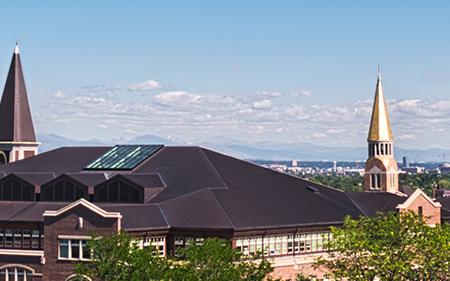
Land Acknowledgement
1st law school in the nation with an associate dean dedicated to diversity, equity and inclusion
1892 inaugural class included a woman, an African American, and a foreign national from Japan
1941 alumna Helen Thorp becomes the first full-time female law faculty member in the nation

Our Commitment to Pay Equity
Diversity Office Contacts
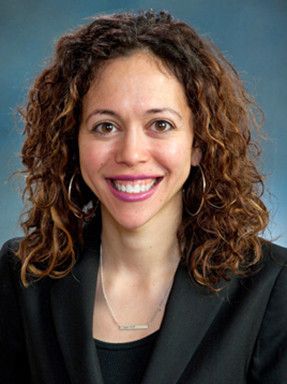
Alexi Freeman
Associate Dean of Diversity, Equity and Inclusion | Director of Externships and Social Justice Initiatives
Learn More
